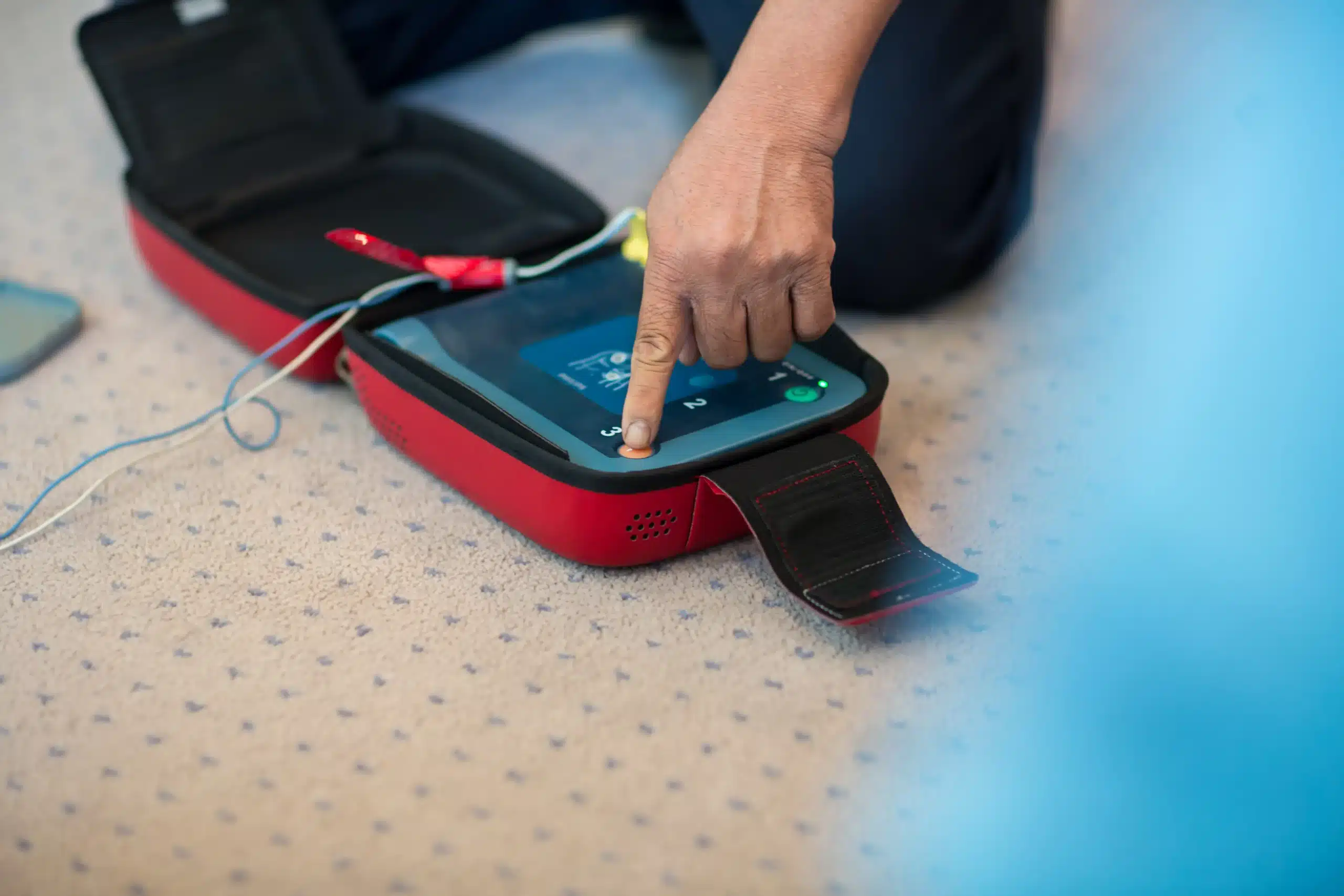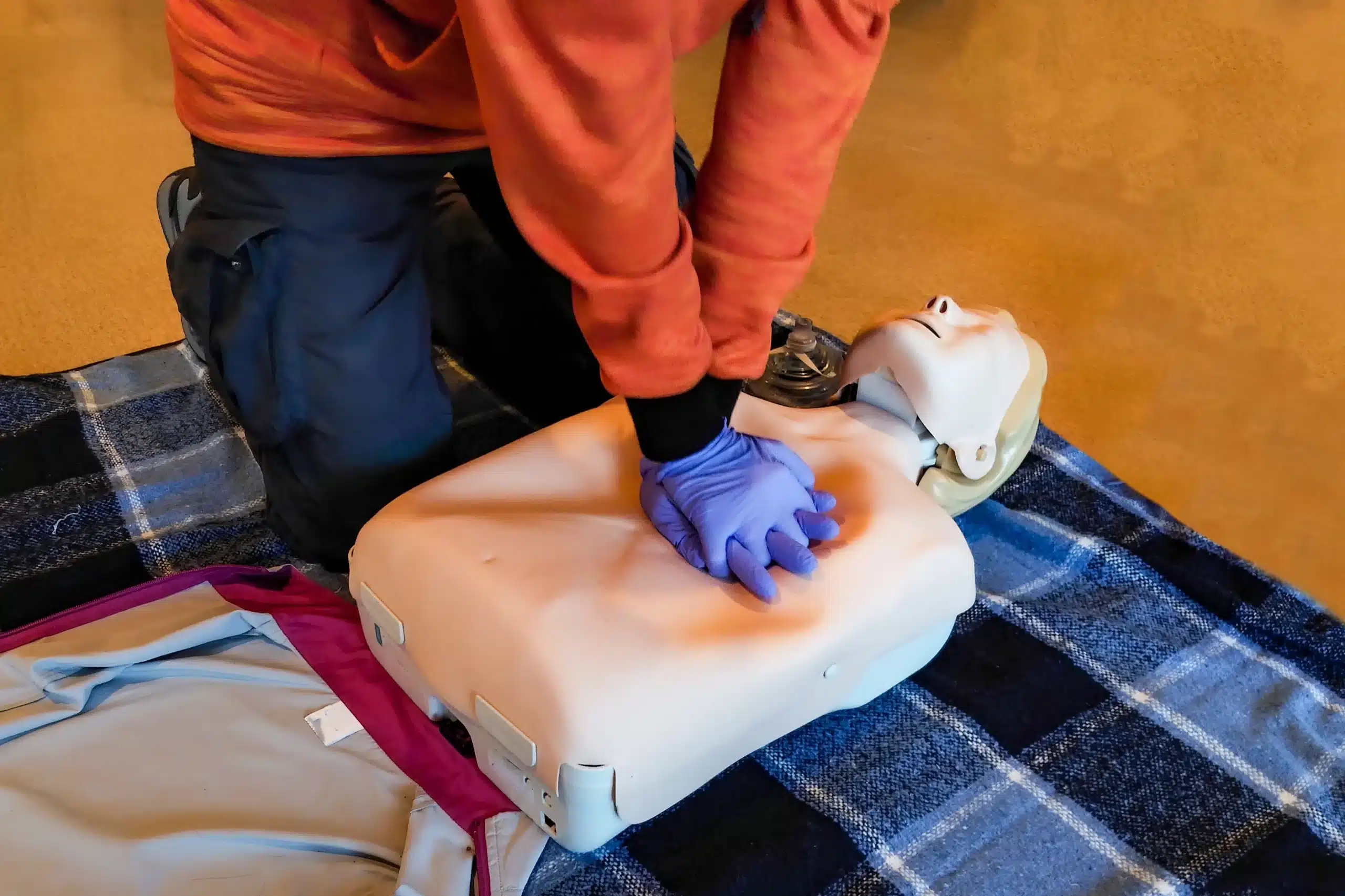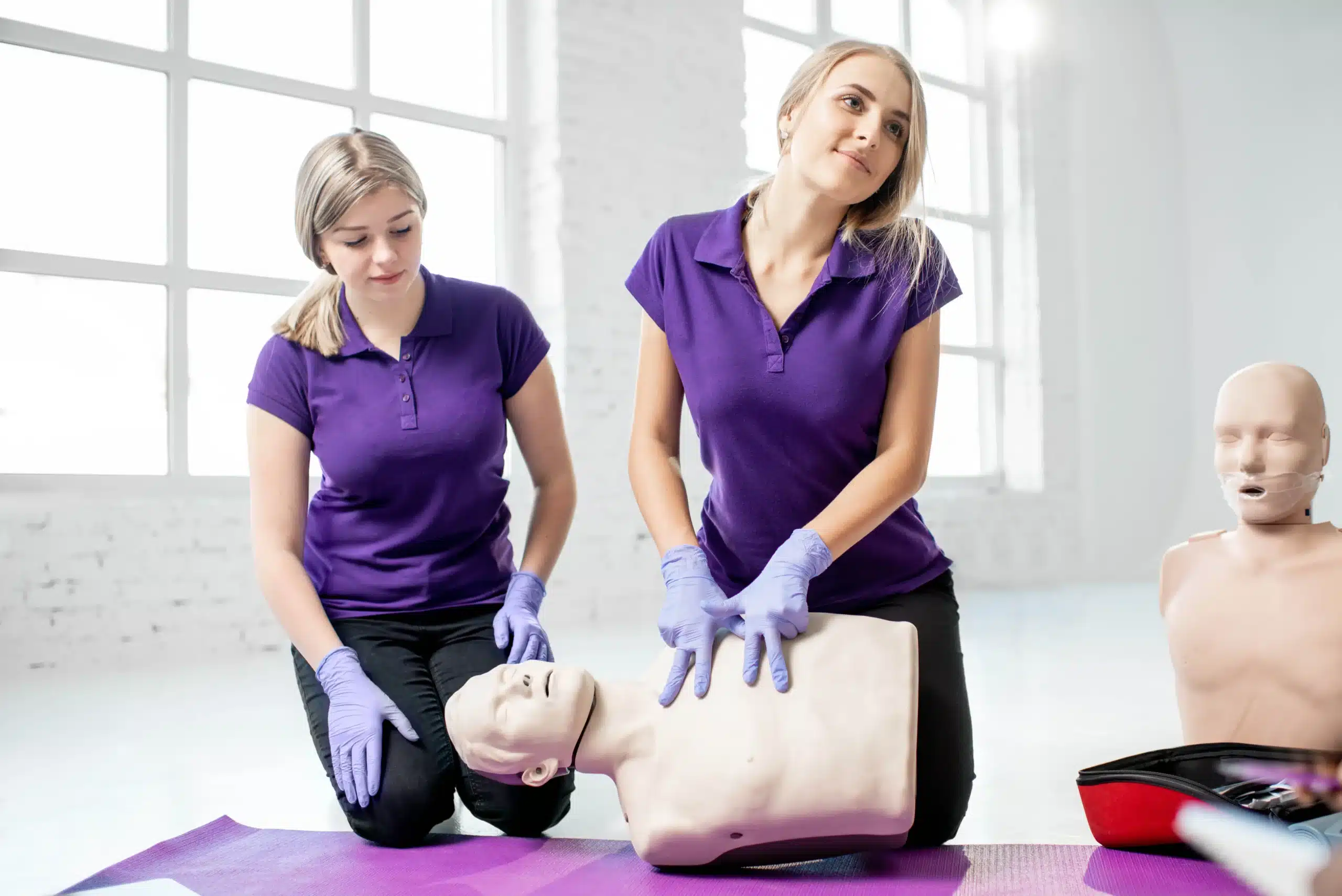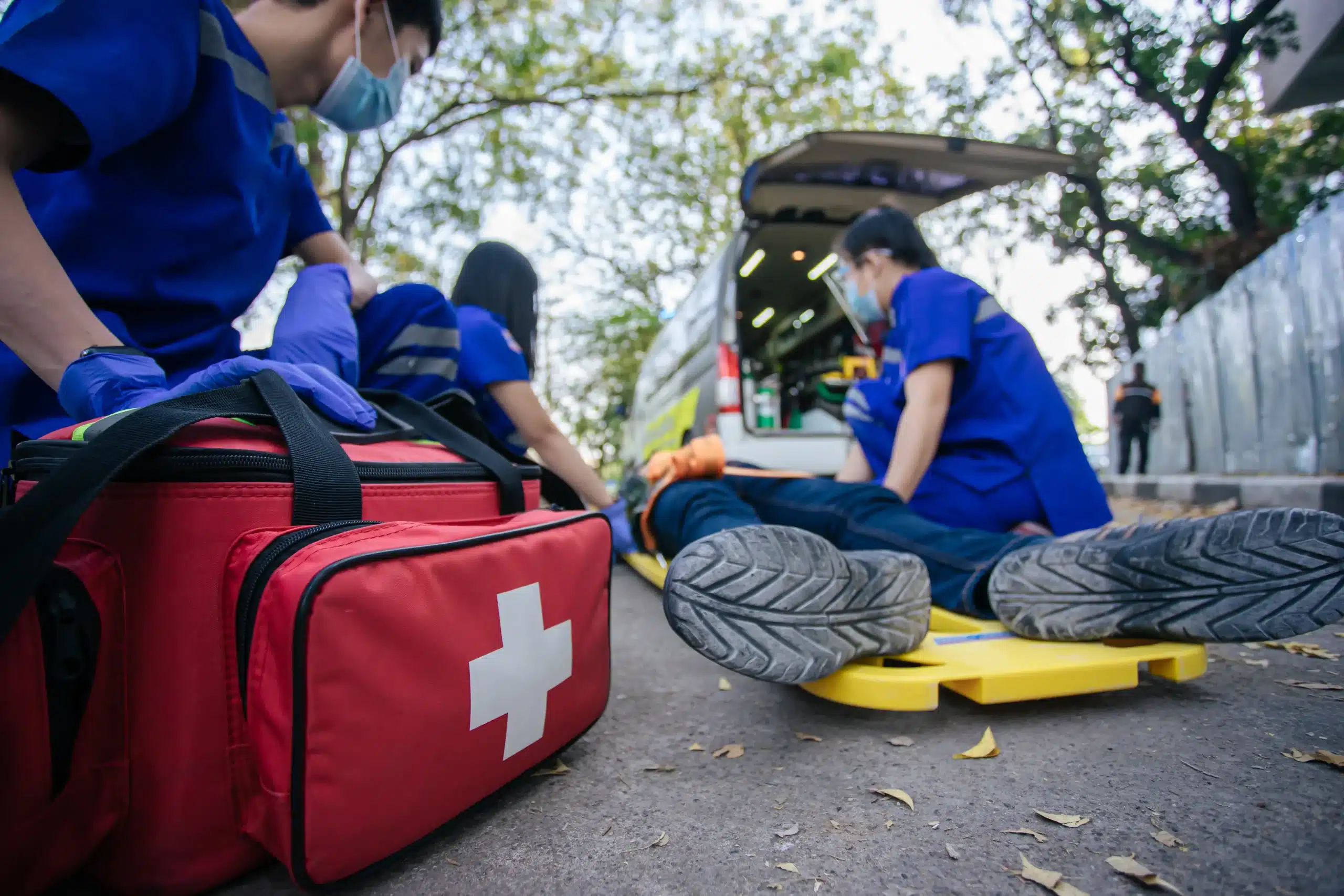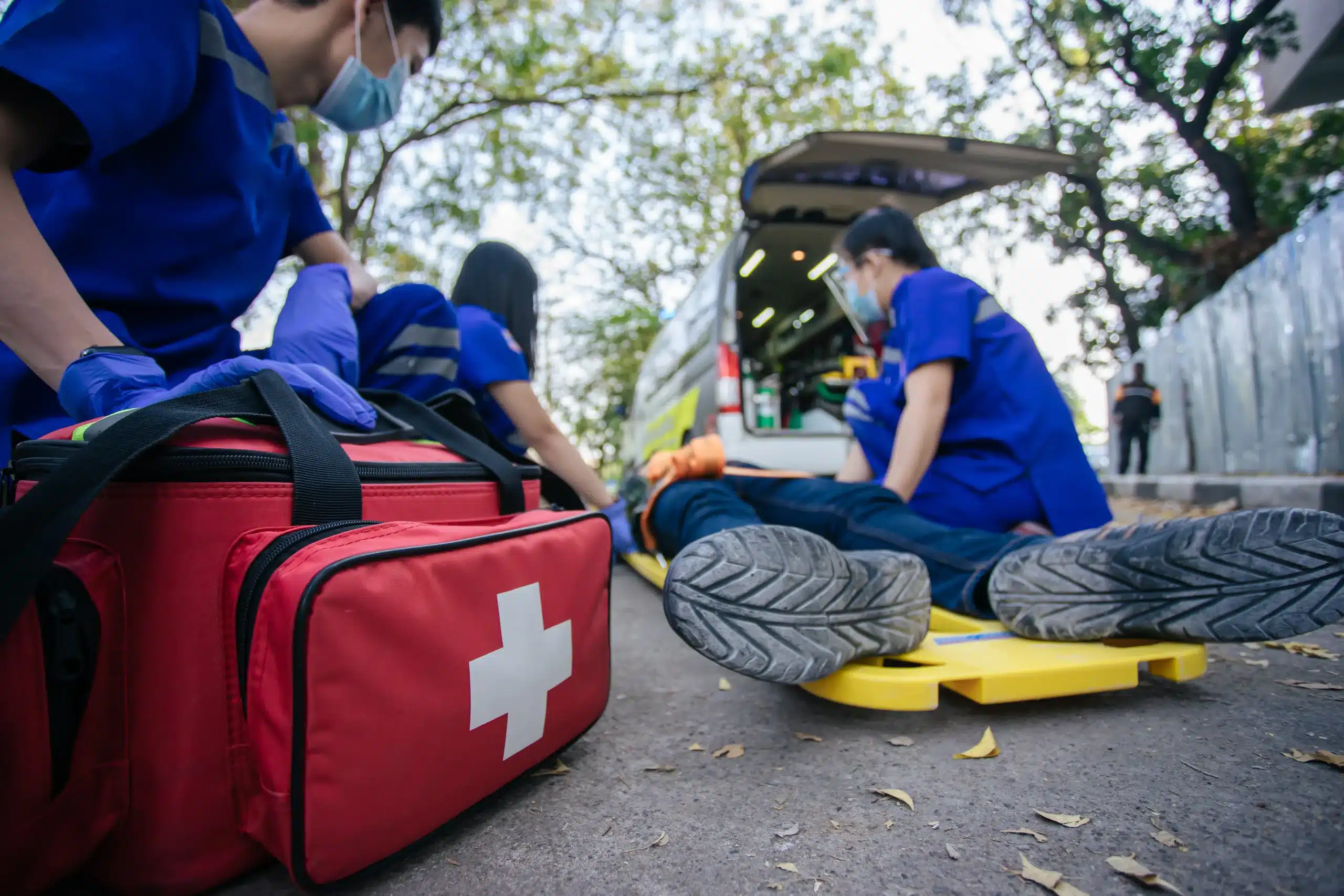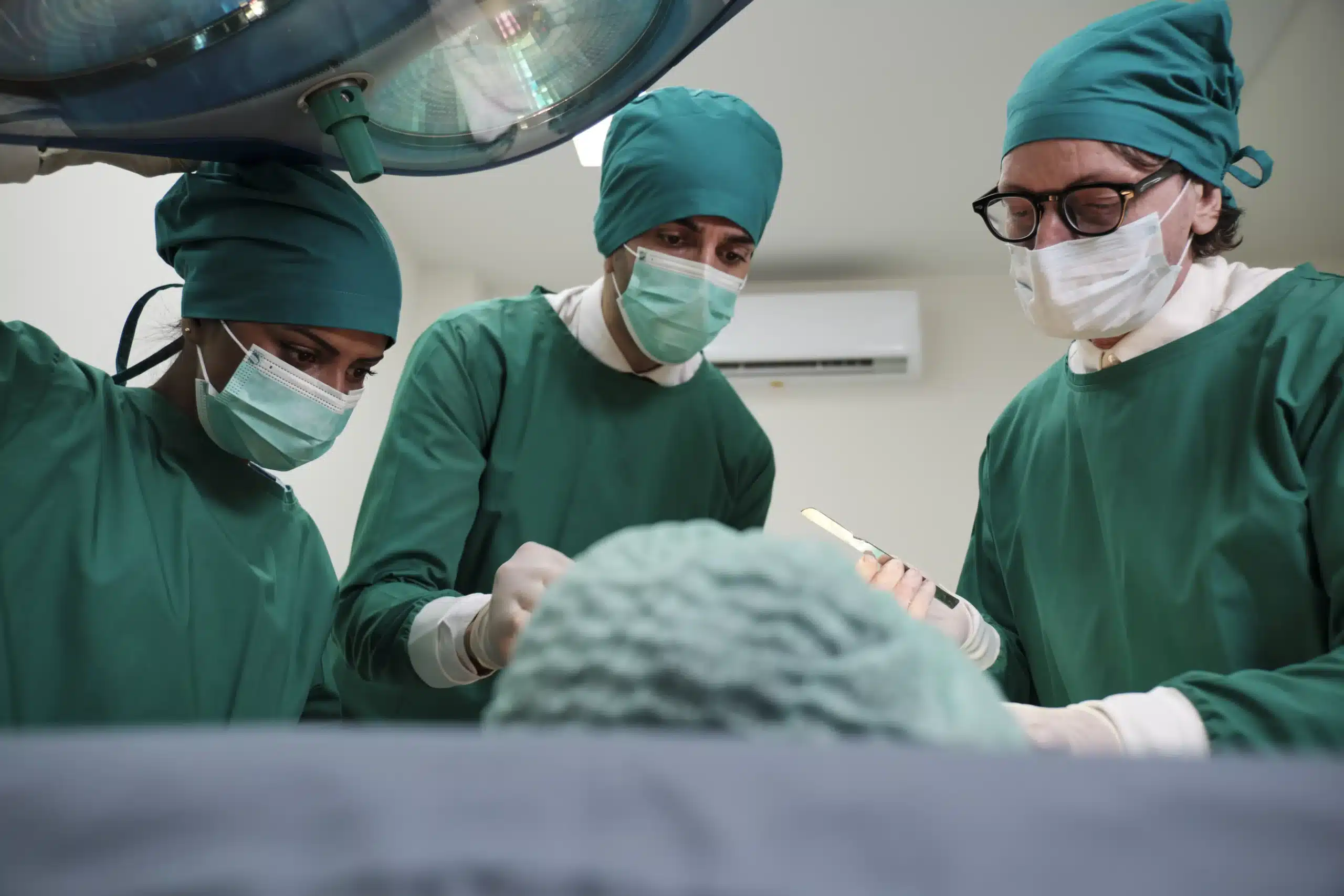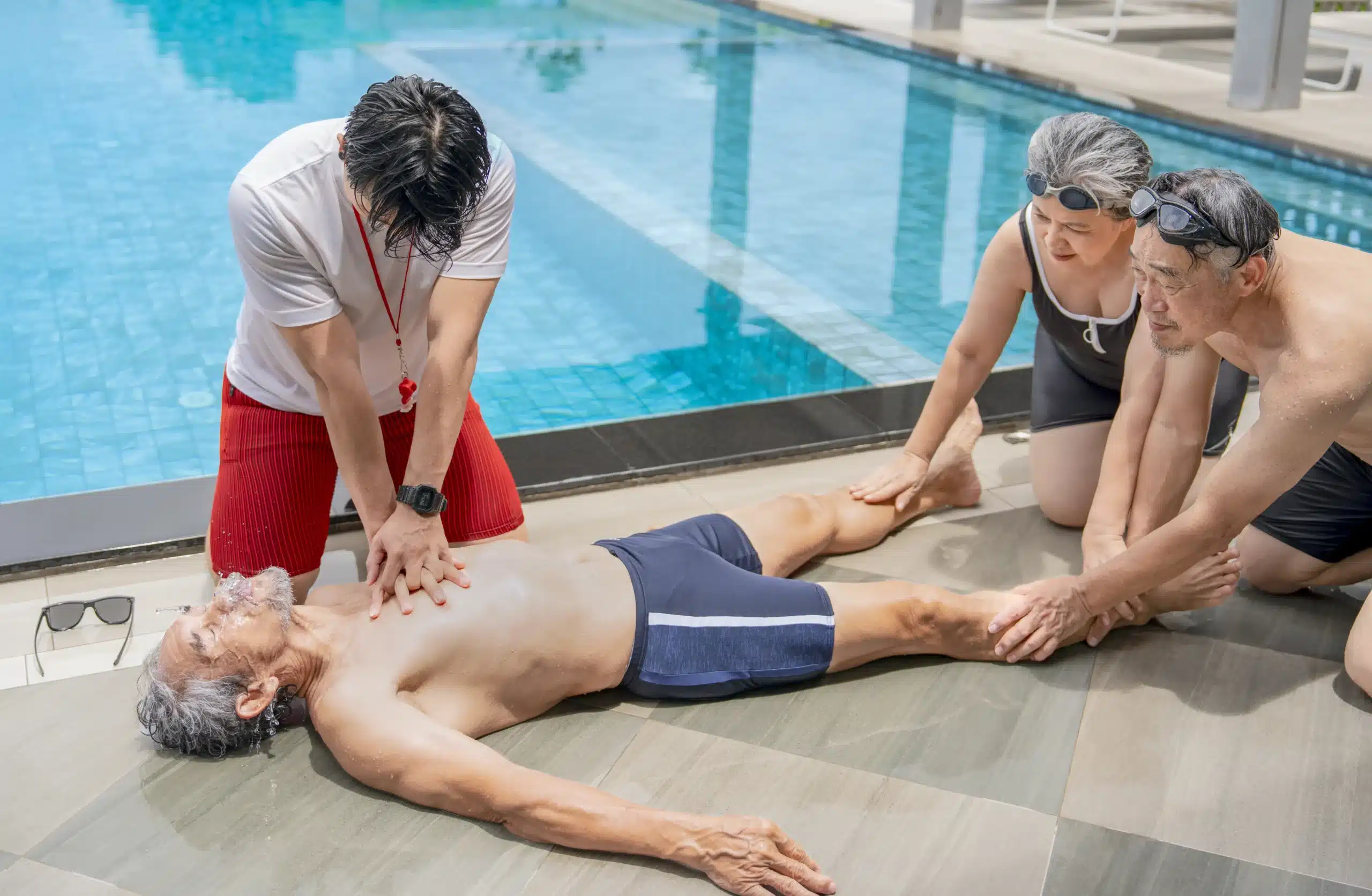Think about the impact you could have as a healthcare provider equipped to handle any pediatric emergency. Pediatric Advanced Life Support (PALS) training makes that impact possible. This post is your comprehensive guide to PALS certification in Santa Clara. Whether you’re a seasoned professional or just starting your healthcare career, understanding the value of pediatric advanced life support in Santa Clara is crucial. We’ll break down the key components of PALS training, where to find accredited courses in Santa Clara, and how this certification can benefit both your career and the community you serve.
Key Takeaways
- PALS is crucial for pediatric care: It equips healthcare professionals with the essential skills to handle emergencies involving infants and children, directly impacting patient outcomes and contributing to a higher standard of care.
- Santa Clara CPR Classes offers accessible PALS training: Their convenient schedules, central location, and Low Price Guarantee make them a practical choice for obtaining and maintaining your PALS certification.
- Maintain your skills for optimal care: Regularly renew your PALS certification and pursue continuing education opportunities to stay current with the latest advancements and ensure you can provide the best possible care in pediatric emergencies.
What is Pediatric Advanced Life Support (PALS)?
What is PALS and why is it important?
Pediatric Advanced Life Support (PALS) is a specialized training program that equips healthcare providers with the skills to respond effectively to medical emergencies involving infants and children. It’s crucial for anyone working where they might encounter pediatric patients needing critical care, such as emergency rooms and intensive care units. PALS certification empowers healthcare professionals to confidently manage life-threatening situations and provide the best possible care for young patients. For those working with children, this specialized training can significantly impact patient outcomes.
Key skills and knowledge taught in PALS training
PALS courses cover essential skills and knowledge specifically tailored to infants and children up to 18 years old. The program focuses on advanced life support techniques, with a strong emphasis on teamwork, as pediatric emergencies often require coordinated efforts. PALS training also teaches participants how to quickly identify children requiring immediate intervention. The curriculum provides a comprehensive review of early treatment and management protocols, including pediatric assessment, airway management, and resuscitation techniques. These skills are critical for stabilizing young patients and improving their chances of survival. You can learn more about PALS certification and its comprehensive approach to pediatric emergency care.
Why Get PALS Certified in Santa Clara?
Choosing to pursue PALS certification is a significant step, especially in a bustling area like Santa Clara. It demonstrates a commitment to enhancing your skills and contributing to a higher standard of care within your community. But what are the benefits, both personally and for the wider healthcare landscape? Let’s explore why getting PALS certified in Santa Clara is a valuable investment.
Impact on Local Healthcare and Patient Outcomes
PALS training equips healthcare providers with the expertise to respond effectively to pediatric emergencies. In time-critical situations involving infants and children, seconds matter. Having the confidence and skills to administer advanced life support can dramatically improve patient outcomes. PALS training emphasizes evidence-based techniques, ensuring healthcare professionals use the most effective methods for managing these emergencies. This translates to better care for the children in our community, fostering a safer environment for everyone. The impact of these trained professionals ripples throughout the community, strengthening the overall response to pediatric emergencies within Santa Clara. This collective expertise creates a more resilient healthcare system, ready to handle critical situations involving our youngest patients.
Meeting Professional Requirements and Standards
Beyond the direct impact on patient care, PALS certification often serves as a professional requirement. The PALS course provides advanced life support training designed for those who regularly manage critical pediatric patients, from infants to children up to 18 years old. Maintaining this certification, which typically requires renewal every two years, demonstrates a commitment to staying current with advancements in pediatric advanced life support. For those seeking career advancement, holding a valid PALS certification can be a crucial credential. It signifies a dedication to professional development and adherence to the highest standards of care. Santa Clara CPR Classes is an excellent resource for obtaining this vital certification.
Find Accredited PALS Courses in Santa Clara
Finding the right Pediatric Advanced Life Support (PALS) course is crucial for healthcare providers needing this specialized training. Santa Clara and the surrounding areas offer various options, so you can find a course that fits your schedule and learning preferences.
Santa Clara CPR Classes
Santa Clara CPR Classes offers American Heart Association (AHA) PALS courses designed to equip healthcare providers with the skills to manage pediatric emergencies. They offer convenient schedules with daily availability, making it easier to fit the training into your busy professional life. Serving Milpitas, San Jose, and Santa Clara, their central location is easily accessible. Their commitment to customer service and a Low Price Guarantee make them a solid choice.
Other Local Providers
Several other providers offer PALS training in the area. Safety Training Seminars is one option, providing AHA-accredited PALS courses in Santa Clara. Researching various training centers will help you compare course content, schedules, and pricing.
Compare Online and In-Person Options
When choosing a PALS course, consider whether an online or in-person format best suits your needs. Online PALS courses offer flexibility, allowing you to learn at your own pace from anywhere with an internet connection. In-person classes provide hands-on training and direct interaction with instructors and other students. Both options lead to the same AHA PALS certification, so the best choice depends on your learning preferences and schedule. Many providers offer classes seven days a week, with various time slots available. You’ll typically receive your PALS provider card upon completion of the course.
What to Expect in a PALS Course
PALS courses blend online and in-person learning, offering a flexible yet comprehensive approach to pediatric advanced life support. Expect a dynamic learning environment that emphasizes practical skills and critical thinking.
Course structure and duration
The PALS course equips healthcare professionals with the skills to manage critically ill infants and children. It focuses on evaluating and treating pediatric emergencies, from respiratory distress to cardiac arrest. The course typically combines online self-study modules with in-person skills sessions and testing. This blended learning style lets participants learn at their own pace before demonstrating their skills. Check with your chosen provider, like Santa Clara CPR Classes, for specifics on course structure and length.
Hands-on training and simulations
PALS training emphasizes teamwork and communication, reflecting real-world pediatric emergency situations. You’ll participate in simulated emergencies, working with other healthcare providers to assess, diagnose, and manage critical situations. These simulations offer valuable practice in a safe environment, building confidence in your abilities. Mastering PALS involves honing these teamwork skills and applying techniques under pressure.
Key components: Pediatric assessment, airway management, and resuscitation
PALS courses cover essential skills, including pediatric assessment, airway management, and resuscitation techniques. You’ll learn to quickly assess a child’s condition, establish and maintain an airway, and perform CPR. The course also covers recognizing and managing common pediatric cardiac arrhythmias and using electrical therapy. Specific skills stations, as outlined by the American Heart Association, include child and infant CPR, AED use, airway management, and vascular access. This training prepares you to handle various pediatric emergencies.
PALS Certification Costs in Santa Clara
Knowing the cost of PALS certification helps you budget accordingly. Let’s break down the typical expenses and explore ways to find the best value.
Average Pricing and Discounts
In Santa Clara, a PALS Renewal course typically costs around $190. This six-hour class covers essential skills and knowledge for healthcare providers working with infants and children. For a complete breakdown of PALS course costs in Santa Clara, CPR Classes in Santa Clara is a helpful resource. If you’re taking the course with colleagues, ask about group discounts. Groups of two to five people often receive a 20% discount, making it more economical to train together.
Santa Clara CPR Classes’ Low Price Guarantee
Santa Clara CPR Classes offers a Low Price Guarantee, ensuring you get competitive pricing for your PALS certification. If you find a lower price for a comparable PALS course, they’ll match it. This commitment to affordability makes it easier to prioritize this crucial training. For more details on PALS certification, including costs and renewals, visit their website.
Group Rates and On-Site Training
For larger groups, on-site training offers convenience and cost savings. If your Santa Clara organization needs to certify eight or more employees, consider scheduling an on-site PALS course. This often comes at no extra charge and allows your team to train together in a familiar environment. Contact Santa Clara CPR Classes to discuss on-site training and tailor a program to your organization’s needs.
Prepare for Your PALS Certification
So, you’re ready to pursue your PALS certification—fantastic! This section covers everything you need to know to get started and ace your course.
Prerequisites and Study Materials
Good news! You don’t need prior pediatric experience to take a PALS course. The course welcomes a broad range of healthcare professionals who work with critically ill infants and children up to 18 years old. This means medical students, nurses, doctors, paramedics, and other healthcare providers can all benefit from this specialized training. Learn more about PALS Certification and register for a class.
While experience isn’t a prerequisite, preparation is key. Familiarize yourself with the course materials beforehand to get a head start and make the most of your training.
Tips for Course Success
Want to excel in your PALS training? Here are a few practical tips to help you succeed:
-
Teamwork makes the dream work: Pediatric emergencies often involve a team of healthcare providers. Understanding how to communicate and collaborate effectively is crucial. Practice clear communication and role delegation with your classmates to build a strong foundation for teamwork.
-
Video prep is your secret weapon: Watching pre-course videos can significantly improve your performance on the skills test. These videos offer valuable demonstrations and insights that can boost your confidence and competence. Check out some helpful resources for PALS preparation.
-
CPR skills mastery: During the skills tests, pay close attention to full chest recoil and swift role switching during two-person CPR. Aim for a smooth transition within five seconds to maintain effective compressions. Practice these skills beforehand to build muscle memory and ensure a seamless performance during the test.
Maintain and Renew Your PALS Certification
Keeping your PALS skills sharp is crucial for providing the best possible care. This section covers how to maintain and renew your PALS certification.
Renewal Requirements and Process
PALS certification is typically valid for two years. To stay certified, you’ll need to renew your credentials before they expire. This ensures you’re up-to-date on the latest pediatric advanced life support guidelines and techniques. Renewal involves retaking the PALS course and passing the certification exam. Maintaining your certification demonstrates your commitment to providing high-quality pediatric care and helps you maintain the confidence and competence to respond effectively in emergencies.
Continuing Education Opportunities
Beyond renewing your certification, ongoing learning is essential for any healthcare professional. The field of pediatric advanced life support is constantly evolving, with new research and best practices emerging regularly. Take advantage of continuing education opportunities to enhance your skills and stay at the forefront of pediatric care. The PALS Instructor Essentials Course is a great option for experienced providers looking to deepen their understanding and potentially train future PALS providers. Regularly reviewing resources like the 2020 Guidelines for PALS Instructors can also help instructors stay informed. By actively pursuing continuing education you can refine your expertise and contribute to better patient outcomes.
Choose the Right PALS Provider in Santa Clara
Finding the right PALS provider is crucial for receiving high-quality training that prepares you for real-life pediatric emergencies. Here’s what to consider:
Accreditation and Instructor Qualifications
First, confirm the training center’s AHA accreditation. This ensures the course meets national standards and is widely accepted in healthcare. Verify instructor qualifications, too. Look for instructors actively involved in pediatric care and passionate about teaching. This ensures you learn from experienced professionals with up-to-date knowledge. Santa Clara CPR Classes, for example, offers AHA-accredited PALS courses taught by certified instructors.
Facility and Equipment Quality
The learning environment matters. A well-equipped facility with modern training equipment significantly enhances your learning. Santa Clara CPR Classes prioritizes a high-quality learning environment for its various courses. Ask providers about their facilities and equipment. Hands-on practice with realistic mannequins and simulators is essential for developing the skills you need.
Student Feedback and Course Effectiveness
Consider what past students say. Student feedback provides valuable insights into the quality of instruction, materials, and the overall experience. Don’t hesitate to ask potential providers for testimonials or check online reviews. A provider’s responsiveness to feedback demonstrates their commitment to continuous improvement. By considering these factors, you can choose a PALS provider in Santa Clara that meets your needs and prepares you to provide excellent pediatric care.
The Future of Pediatric Emergency Care in Santa Clara
Santa Clara is committed to providing high-quality healthcare, and pediatric emergency care is a key focus. The future of this critical field depends on advancements in training and the continued importance of certifications like PALS.
Advancements in PALS Training
PALS training constantly evolves to reflect the latest research and best practices in pediatric emergency care. This ensures healthcare providers have the most current, evidence-based techniques. For anyone facing a pediatric emergency, PALS training can improve patient outcomes. Key areas include proficiency in Pediatric Basic Life Support (BLS), the foundation of PALS, and effective team dynamics. Pediatric emergencies often demand coordinated efforts, and training like PALS emphasizes teamwork and communication. These advancements lead to faster response times, better decision-making in critical situations, and ultimately, more lives saved.
Ongoing Importance of PALS Certification
Santa Clara demonstrates its commitment to excellent pediatric care by offering American Heart Association (AHA) PALS courses. These courses equip healthcare professionals with the skills to manage pediatric emergencies. Maintaining this certification is vital. PALS certification typically requires renewal every two years, ensuring providers stay current with advancements and maintain proficiency in pediatric advanced life support. The evolution of PALS guidelines has dramatically improved patient outcomes and survival rates, emphasizing this specialized training’s importance. As medical knowledge and technology advance, so will PALS training, ensuring Santa Clara remains a leader in pediatric emergency care.
Related Articles
- AHA PALS Classes in Santa Clara, CA – Santa Clara CPR Classes
- CPR Certification in San Jose: A Complete Guide
- CPR Training in Santa Clara: A Complete Guide – Santa Clara CPR Classes
- BLS Certification in Santa Clara: A Guide for Healthcare Providers – Santa Clara CPR Classes
- ACLS Renewal San Jose: Your Complete Guide – Santa Clara CPR Classes
Frequently Asked Questions
What exactly does PALS cover that basic CPR doesn’t?
PALS builds upon the foundational skills of basic CPR but delves much deeper into the specialized care required for infants and children. It covers advanced life support techniques like recognizing and managing pediatric cardiac arrhythmias, using specialized equipment for airway management, and understanding the physiological differences between children and adults in emergency situations. It’s a more comprehensive approach to pediatric emergencies.
How long is PALS certification valid, and what’s involved in renewing it?
PALS certification is typically valid for two years. To renew, you’ll need to retake the PALS course and pass the skills tests again. This ensures your knowledge and skills are current with the latest guidelines.
I’m not a doctor or nurse. Can I still get PALS certified?
Absolutely! While PALS is often a requirement for certain healthcare roles, anyone working with or around children can benefit from this training. Medical students, paramedics, EMTs, respiratory therapists, and other healthcare professionals are all encouraged to become PALS certified.
Are online PALS courses as good as in-person classes?
Both online and in-person PALS courses result in the same AHA certification. Online courses offer flexibility, while in-person classes provide more direct interaction with instructors. The best choice depends on your learning style and schedule. Both formats cover the same core material and require in-person skills testing.
What should I do to prepare for a PALS course?
Reviewing the PALS Provider Manual beforehand is a great start. Watching any pre-course videos offered by your training center can also help familiarize you with the material and improve your performance during the skills tests. Most importantly, come ready to learn and participate actively in the simulations.
